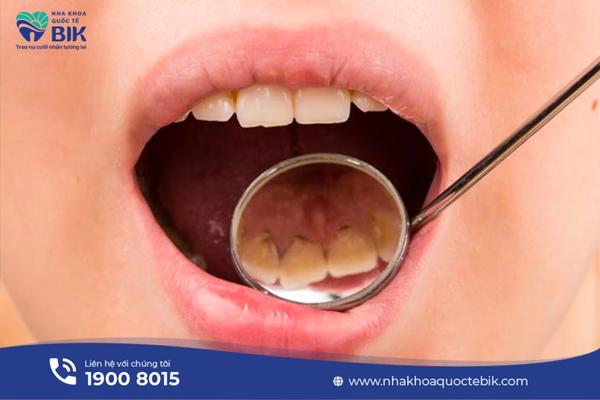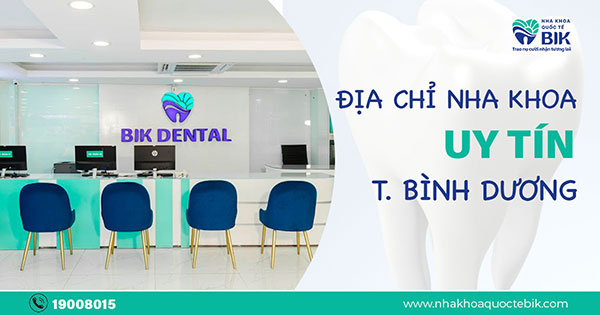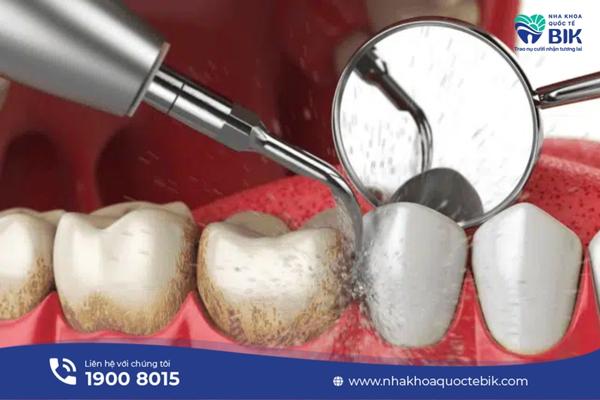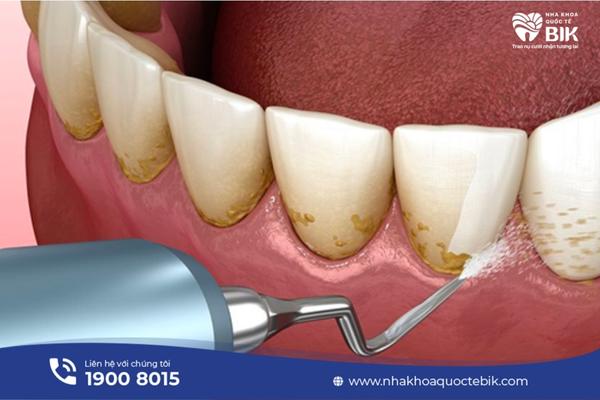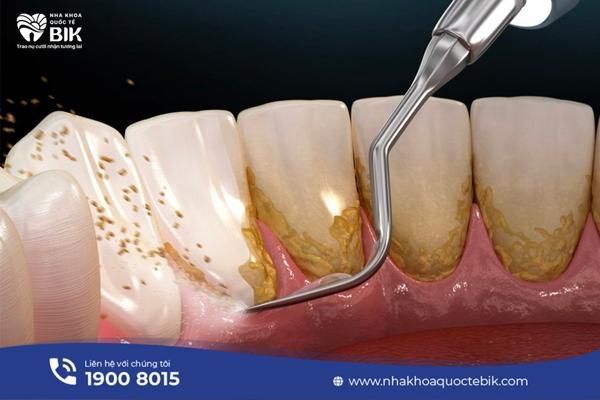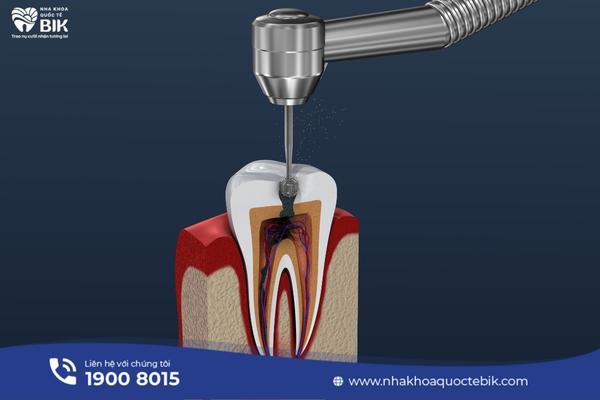There are many reasons for bleeding gums, the most common manifestation of gingivitis and periodontitis. However, bleeding gums can also be a sign of diabetes, changes in the endocrine system and vitamin deficiencies. In the following article, BIK International Dental Clinic will share the causes, treatment methods and effective ways to prevent bleeding gums to protect your oral health.
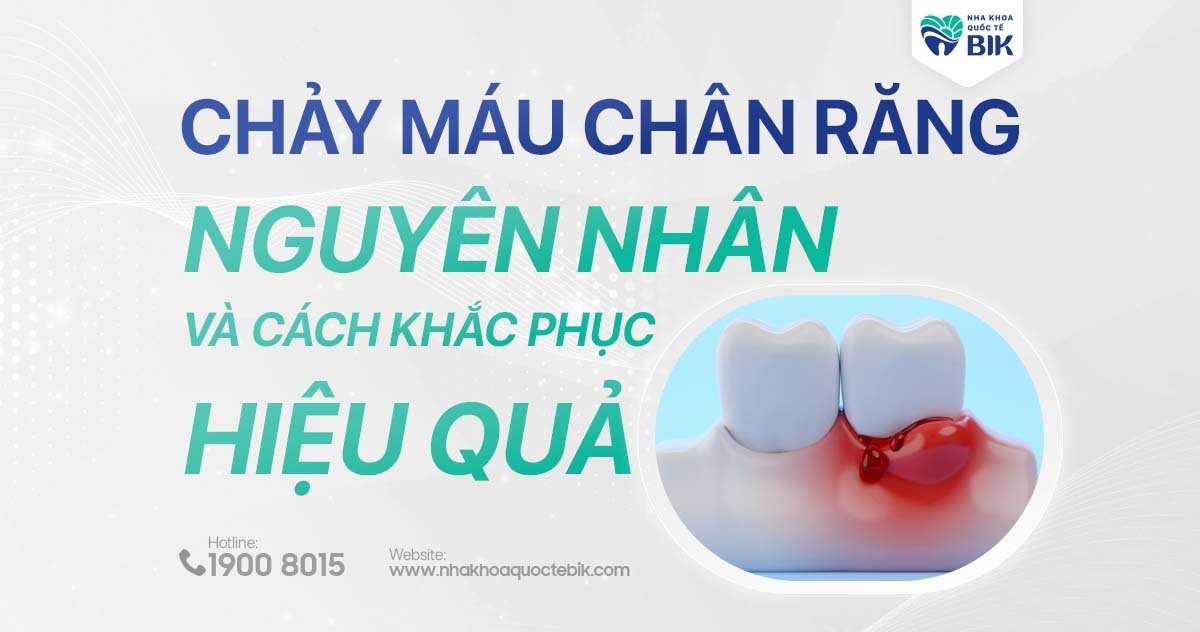
What is bleeding gums?
Bleeding gums is a condition in which blood flows from the gums and between the teeth. Bleeding teeth can be a warning sign of gingivitis and other gum diseases. Sometimes, this can also be a sign of other health problems such as diabetes, malnutrition, immunodeficiency, etc.
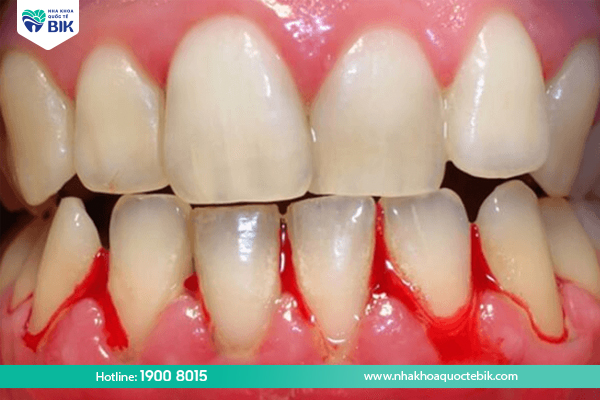
See more: What is gum bleeding a sign of?
Signs of gum bleeding
The first sign of gum bleeding is usually the swollen, red, and tender gums that are painful and bleed when touched. In addition, it can also occur when there are external impacts such as when chewing, brushing your teeth hard or even when you floss your teeth or smack your lips, the tooth root can also bleed.
Causes of bleeding gums
When the soft structures around the teeth such as gums, ligaments, jaw bones are damaged, it can lead to bleeding gums. The causes of this damage can include:…
Poor, improper oral hygiene
This creates favorable conditions for bacteria to grow between the teeth. Toxins from harmful bacteria reduce the body’s resistance, leading to symptoms such as swelling, inflammation, bleeding gums, etc.
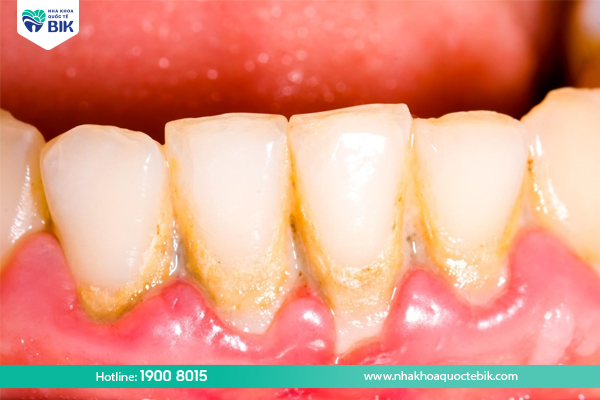
Strong impacts that damage teeth
Brushing teeth too hard, using a hard toothbrush or external impact can damage the gums, causing bleeding bleeding.
Gingivitis, periodontitis
People who do not regularly have their teeth cleaned are susceptible to gingivitis and periodontitis. The gums will be red, swollen, inflamed, congested and bleed easily. As the gums become more inflamed, bleeding will also increase.
Crooked, uneven teeth
Crooked, uneven teeth make oral hygiene difficult. Food stuck between teeth can easily cause inflammation and bleeding gums.
Hormonal changes in women
Women often experience hormonal changes during periods such as puberty, pregnancy or perimenopause. These sudden changes can lead to increased blood flow to the uterus, causing bleeding.
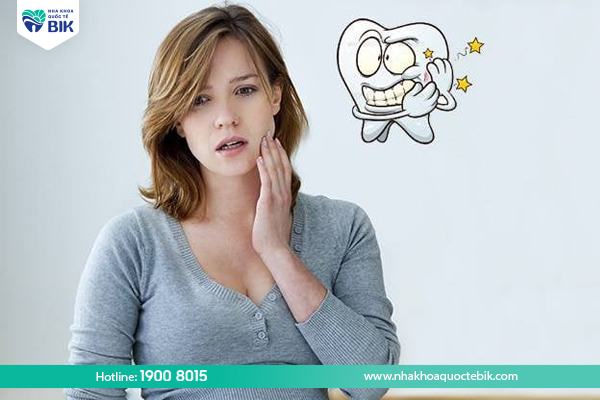
Thrombocytopenia
Platelets in the blood play an important role in preventing bleeding. When the body is faced with diseases such as dengue fever, leukemia, etc., it will lead to a decrease in platelet count. This can cause uncontrolled bleeding.
Lack of Vitamin C, Vitamin K
Vitamin C supports tissue growth and regeneration, helps heal wounds, and strengthens your bones and teeth. A lack of Vitamin C can lead to swollen and bleeding gums.
Meanwhile, Vitamin K helps blood clot when there is a wound. Vitamin K deficiency due to dietary deficiency or insufficient absorption by the body can also cause bleeding.
Liver and kidney disease
The liver and kidneys are both involved in the synthesis of blood clotting from Vitamin K. When there is a problem with these two organs, the synthesis of the substance will be affected, leading to a condition where the blood does not clot in time, causing bleeding.
In addition, patients with diseases related to blood clotting disorders, leukemia, or multiple myeloma are also at risk of severe bleeding gums.
When signs of bleeding gums are detected, patients need to see a dental specialist and should also have a general health check-up to detect early other health problems that are affecting the body. can.
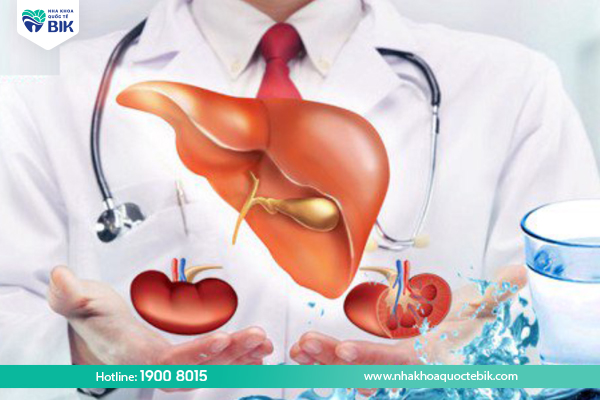
Is bleeding gums dangerous?
Bleeding gums can be a sign of many different health problems, from mild to more serious conditions. In mild cases, this phenomenon can be related to inflammation or damage to infected gums. However, if not treated promptly, it can cause dangerous complications such as:
- Impact on cardiovascular health: frequent bleeding gums can cause infections to spread to the blood vessels, affecting cardiovascular health.
- Negative effects on pregnant women: studies have shown that bacteria from gingivitis can spread through the blood and affect the fetus, possibly increasing the risk of premature birth or low birth weight.
To avoid unwanted complications and potential risks, when experiencing prolonged bleeding gums, visit your dentist regularly for advice and a suitable treatment plan for your teeth.
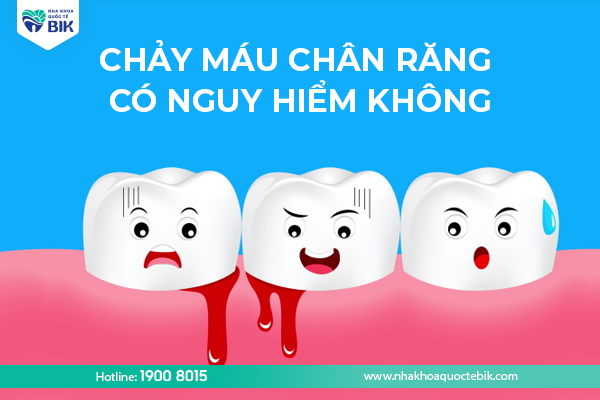
How to treat bleeding gums
After determining the cause of bleeding gums, you will have the appropriate treatment method. If the cause is due to a medical condition, you need to carry out comprehensive treatment to stop the bleeding gums.
Stop bleeding as soon as you detect bleeding gums
At home, you can control bleeding gums with the following simple methods:
- Apply aloe vera juice to the gums for about 5 minutes, twice a day. Then rinse your mouth with clean water.
- Apply clove oil to the gums for about 5 minutes. Then rinse your mouth with clean water.
- Combine fresh green tea leaves with honey. Hold for about 3 minutes before swallowing. Do this 2-3 times a day.
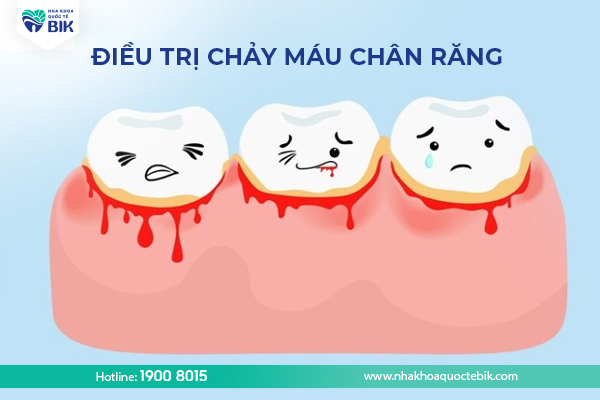
What should you eat and drink when you have bleeding gums?
People with bleeding gums due to lack of Vitamin C, Vitamin K or Calcium need to supplement these substances through consuming foods such as oranges, lemons, grapefruit, seeds, cheese, vegetables green,…
At the same time, maintaining a nutritious diet will help you recover quickly and maintain normal body function. What medicine should be used for bleeding gums?
The use of medicine must strictly follow the doctor’s instructions. There are the following common types of medicine:
- Corticosteroids to treat swelling, redness, toothache
- Antibiotics to kill bacteria
- Mouthwash helps eliminate bacteria in the mouth
- Anti-inflammatory drugs to reduce inflammation
- However, you should not use medicine on your own but must strictly follow the prescription and dosage prescribed by your doctor.

How to prevent bleeding gums
To prevent bleeding gums most effectively, what you need to do is eat a nutritious diet, improve your health and supplement your body with vitamins. At the same time, take care of your oral health properly.
- Use soft-bristled toothbrushes and brush gently to avoid damaging the gums
- Quit smoking and limit the use of stimulants
- Check your oral health and remove tartar every 6 months
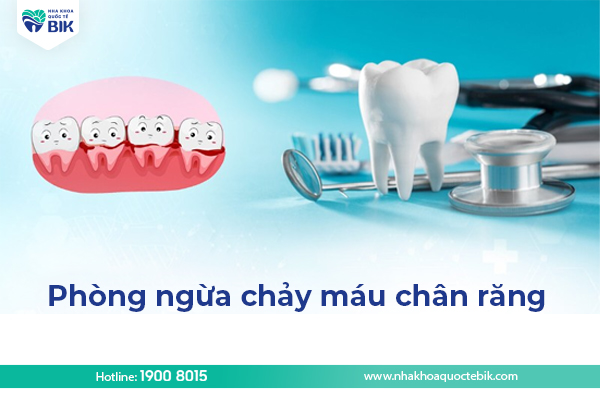
More than 90% of the Vietnamese population suffers from oral diseases. This shows that we have not paid due attention to our oral health. When there are problems with the oral cavity, it will also greatly affect other organ systems in the body. Therefore, it is necessary to change many habits in oral care, have regular health check-ups. And when encountering any problems, you need to go directly to reputable dental clinics and hospitals to avoid dangerous complications.
Gingivitis or other general health problems can be the cause of bleeding gums. If you experience unexplained bleeding or bleeding when brushing your teeth, visit your dentist to find out the cause and appropriate treatment.


